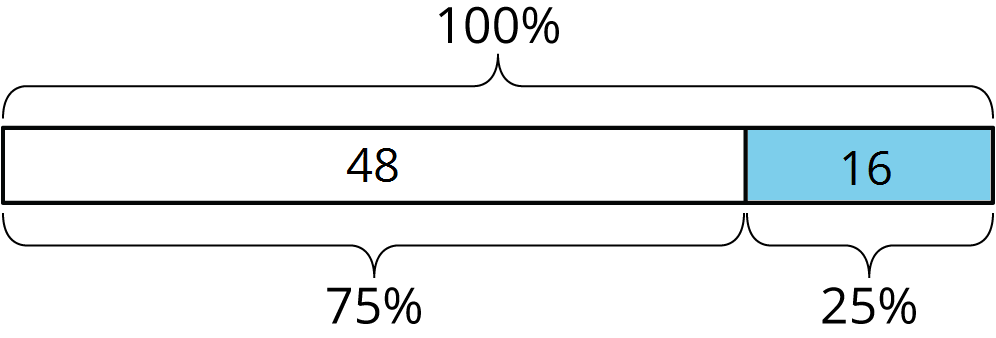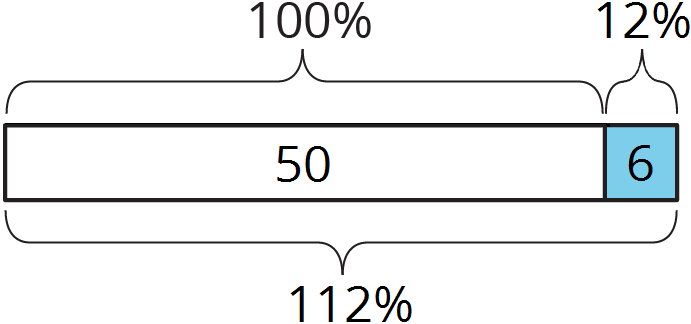Lesson 3
Increasing and Decreasing
Lesson Narrative
This is the first of four lessons about percent increase and percent decrease. The goal of this lesson is to understand what is meant by "20% more than" or "10% less than." Students relate this language to the previous two lessons where they talked about "half as much again" and "one third less than." They use tape diagrams to represent percent increase and percent decrease, and to solve problems. The contexts in this first lesson are all of the type where you are given the original amount and the percent increase or decrease and must calculate the final amount.
Students use tape diagrams and their understanding of the language of percent increase and decrease to reason about different contexts (MP3). Students should be able to interpret the meaning of a percent increase or percent decrease in the context of a problem (MP2).
Learning Goals
Teacher Facing
- Coordinate statements about “percent increase” or “percent decrease” with comparisons to the original amount, e.g., a 20% increase means the new value is 120% of the original value.
- Draw and label a tape diagram to represent a situation that involves adding or subtracting a percentage of the initial value.
- Explain (orally and in writing) how to calculate the new amount given the original amount and a percentage of increase or decrease.
Student Facing
Let’s use percentages to describe increases and decreases.
Learning Targets
Student Facing
- I can draw a tape diagram that represents a percent increase or decrease.
- When I know a starting amount and the percent increase or decrease, I can find the new amount.
Glossary Entries
-
percentage decrease
A percentage decrease tells how much a quantity went down, expressed as a percentage of the starting amount.
For example, a store had 64 hats in stock on Friday. They had 48 hats left on Saturday. The amount went down by 16.
This was a 25% decrease, because 16 is 25% of 64.

-
percentage increase
A percentage increase tell how much a quantity went up, expressed as a percentage of the starting amount.
For example, Elena had $50 in the bank on Monday. She had $56 on Tuesday. The amount went up by $6.
This was a 12% increase, because 6 is 12% of 50.

Print Formatted Materials
For access, consult one of our IM Certified Partners.
Additional Resources
| Google Slides | For access, consult one of our IM Certified Partners. |
|
| PowerPoint Slides | For access, consult one of our IM Certified Partners. |